Last year I celebrated 5 years as a location independent entrepreneur / digital nomad and a full-time traveler.
I always take an extra moment on this day to think about what it’s been like and if it still makes me happy.
The short answer is – hell yes! ? Feels a bit as if I’ve been living several lives already when I look back at all the adventures and memories.
Questions about what it’s like to be a digital nomad? Here are my answers to some of the most common ones. Whether you’re new or experienced with this way of life, there is a lot to digest here. Feel free to read it all or jump directly to those areas most relevant to you.
Overview
Lifestyle and Business Set-up for Digital Nomads
Travel Planning and Destinations for Digital Nomads
Accommodation As A Digital Nomad
Packing for Full-time Travel / As a Digital Nomad
Budget for Digital Nomads
Relations As A Digital Nomad
Work-Life Balance As A Digital Nomad
Having A Home and Tips on How to Get Started
Lifestyle and business set-up for digital nomads
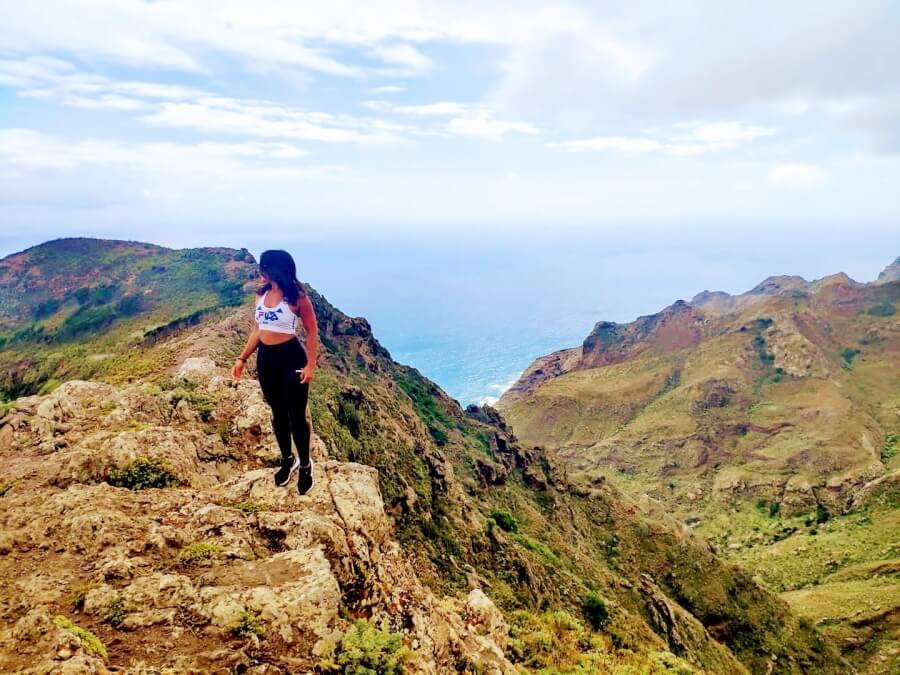
Is the digital nomad lifestyle for everyone?
No matter whether you’d like to travel all over the world, spend more time with family and friends in your hometown, help solve a world problem, or learn how to dance salsa in Colombia, the beauty of the nomad lifestyle is the freedom to design the life you’d like to live. There is no one way of living, instead, you have the possibility to step away from all the stereotypes of how one should live (bye-bye 9-5) and enjoy your life in a way that makes you feel happy and fulfilled.
With that said, it’s not for everyone. It requires a lot of discipline, initiative, motivation, energy, and drive. It’s about much more than just “traveling with a laptop”. If it fits you, however, going for it will probably be one of the best decisions you’ve ever made.
What type of work can you do as a digital nomad?
A common stereotype is that the nomad lifestyle only suits certain professions. While some roles, such as designers, marketers, programmers, and writers are more represented, there are nomads within most areas these days. The variation I’ve seen ranges from doctors and betting specialists to selling the most random products you can imagine online.
The pandemic has pushed the growth with hundreds of percent, forcing companies that didn’t offer remote opportunities to quickly set up a structure for it. Many leading brands, such as Twitter and Google, have gone permanently remote.
What usually sets the limit is the mindset of what’s possible. I used to think that you couldn’t manage big projects or have key meetings remote until I did, and it worked out just fine. People who haven’t experienced a world without the internet and social media are likely to be more open to virtual meet-ups, even when discussing sensitive topics. The technology will only advance, making it possible to move projects forward in more creative ways than ever before.
How much can you earn as a digital nomad?
Your income is closely connected to your mindset of what’s possible and, of course, the effort you put in. While some sources list averages, I’ve seen people earning anything from a few hundred dollars to millions while traveling the world.
To simplify, income can be divided into active and passive income. Within each category, there is a wide range of options. You can earn active income by being employed by a business, offering consulting services, selling products, collaborating with brands as an influencer, etc.
Passive income is usually achieved through investments, affiliate marketing, or by selling online products, such as e-books and courses, etc. Passive income is a dream for many since it allows you to earn money while you’re sipping cocktails on the beach, literally. Several people earn millions this way, and many fail too. Several nomads combine these two but usually start with active income sources.
A lot comes down to how big you dare to think, the value you provide, how good you are at marketing and packaging it, and building different income streams.
Where should my business be registered? What about taxes?
I’m a Swedish citizen and have my business registered in Sweden for now. That’s also where I pay taxes. Since I move around a lot, it still doesn’t exist any perfect solution for my kind of setup.
The systems are still behind this way of living. Many countries are trying to develop solutions specifically for nomads. I’m confident that there will be more adjusted options in the future, even if it’s complicated.
Many nomads decide to base their business in some of the known tax paradises. The most important when getting started is that you read up, pay your taxes where it makes the most sense for your situation, and make sure you understand the rules for your specific case since each country is different.
What do you do when you’re not working?
It depends where I’m. I always make sure to find the best places to eat and watch the sunset. I love working out, reading, learning, meeting new people, trying exciting activities at the place I’m at, and exploring what it has to offer. Live music, dancing, events, hikes, and beach days are also always good ideas. I don’t care too much about what day it is – with this lifestyle a normal Tuesday can be as special as the weekend or holiday many people look forward to.
How do you stay productive when traveling?
You’ll always be surrounded by temptations, so learning how to say no is essential. It’s a lot about having the right mindset and remembering why you’re doing something. Depending on how you prioritize, this can be your life or a short holiday that you have to come back from. It helps to like what you do. I look forward to working on my projects and want to set off time for it!
Reduce unnecessary stress by scheduling enough time at each destination based on your workload, need for rest, and sightseeing wish-list. In this way, you’ll be able to focus on work and try those activities you’re excited about, without feeling bad about it. It’s also okay to not do everything at every place every time (I’m getting better at embracing this…?)
You might also like: 10 Productivity Tips for Digital Nomads
Travel planning and
destinations for digital nomads
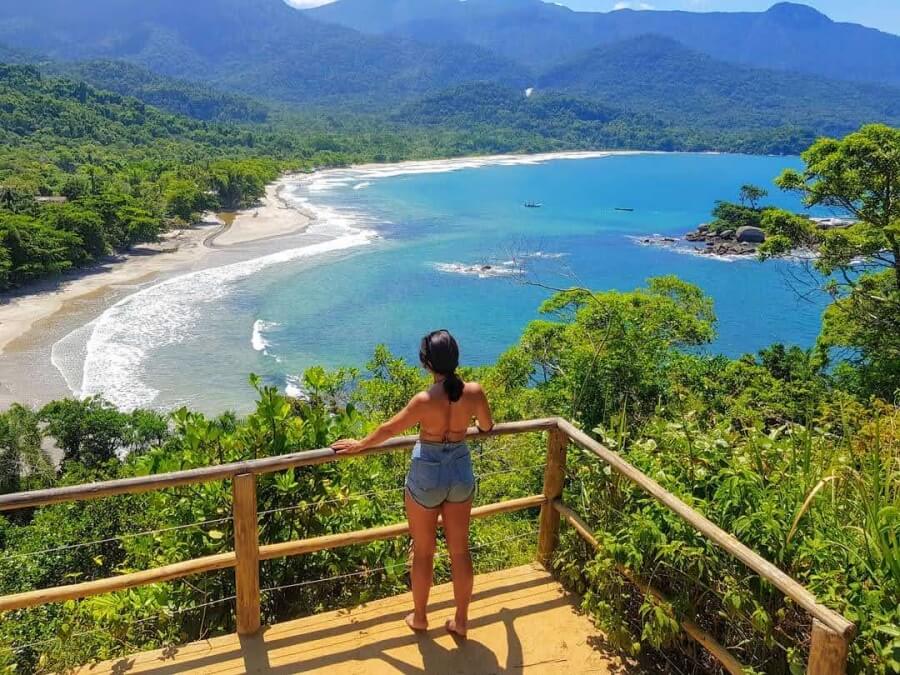
Where is home?
I don’t have a fixed base, so from that perspective, my home is where I’m at the moment, be it for a few days or longer. By now, I’ve got a few different destinations around the world where I always return and I feel at home.
When I went to Latin America the first time I felt like I found “my place” since the culture represents a lot of who I’m. Sweden will also always be home in a way since that’s where I grew up. My family lives there and I understand how everything works. I love visiting, and think Sweden is a role model in a lot, but don’t see myself ever living there again. The culture is very different from my life approach.
For me, home doesn’t necessarily translate into a specific place or house. It’s more about how I feel about the place I’m – and I’m open to that this may change over time.
How much do you travel?
I’ve traveled full-time since August 2016. Often I spend several months in each country and travel a lot within it while I’m there. My travel style has changed over the years. In my first year, I spent just a few days in each place, apart from one stop of 2 weeks. Until COVID started, I had still not spent more than one month in the same place since 2016. Which is a bit crazy when I think about it, what an adventure it has been!
While I love my relatively fast-paced life, it’s not for everyone. As my sister sometimes describes it, some would get tired just by thinking of it ?. During COVID, I got stranded on a beautiful island in Brazil for 5 months. Since then, I’ve started to appreciate the mix of short and longer stops. I’ve also started to spend more time in Europe to be closer to family and friends there.
Many nomads base themselves in different destinations for at least a few weeks and mix that up with faster traveling. Some do also have a home base, but are still location-independent and travel a lot more than the average person.
How do you decide where to go?
I’ve got a never-ending bucket list and would like to visit every country in the world at some point, with no rush. My choice of destination depends on what I’m looking for at the moment. I think contrasts make life more interesting. Just as much as I enjoy vibrant city life, I like escaping it to lose myself in nature, enjoy adrenaline-filled activities, explore the countryside, relax in a charming mountain village, on a paradise island, or in a wine spa.
These days I’ve found a good balance between going back to my favorite places and visiting new ones. I usually divide my year between South America and Europe. Discovering a place for the first time, and returning to my favorites, still gets me as excited. Soon I’d love to explore more of Asia and Africa as well!
How do you plan specific trips?
I have a long list of destinations that I keep track of in a project management tool. Under each country, I add new places to visit as I hear about them. You know when someone tells you that you just have to go to this paradise spot or eat at this restaurant. By writing it down there is a chance that you actually will.
Once I’ve decided that I’m going to a continent, I outline which countries I’d like to visit with approx. time in each. When it gets closer, I research places within the country I’m going to, read up more about the culture, etc. I always like to be flexible so I rarely book things in advance if I don’t have to, and always leave room for changes. I prefer to travel without dates and usually decide how long I’ll stay once I’m on-site. Even if I arrive with a rough plan, it always changes.
How do you research places?
Apart from recommendations I’ve been getting before, I think the best way is to ask the locals. I also read travel publications, blogs and reach out to some people via social media. Since I’ve started to return to more places, I keep myself updated on what’s new. One of the highlights of coming back to Stockholm every summer is to check out all the newly-opened restaurants!
Do you have any favorite places?
I’ve been to so many amazing places I could visit again. Some places are magical but I wouldn’t live there, while there are others where I could imagine having a house one day. Brazil, Sweden, Colombia, Italy, and Spain are a few of the countries I always come back to.
Patagonia is one of the most beautiful places I’ve seen. Then I could go on and on about other spots that made a lasting impression, like that sunset at the secret beach in Belize, dreamy colorful towns in Colombia, Ilhabela with its 300+ waterfalls. And…
Accommodation as a digital nomad
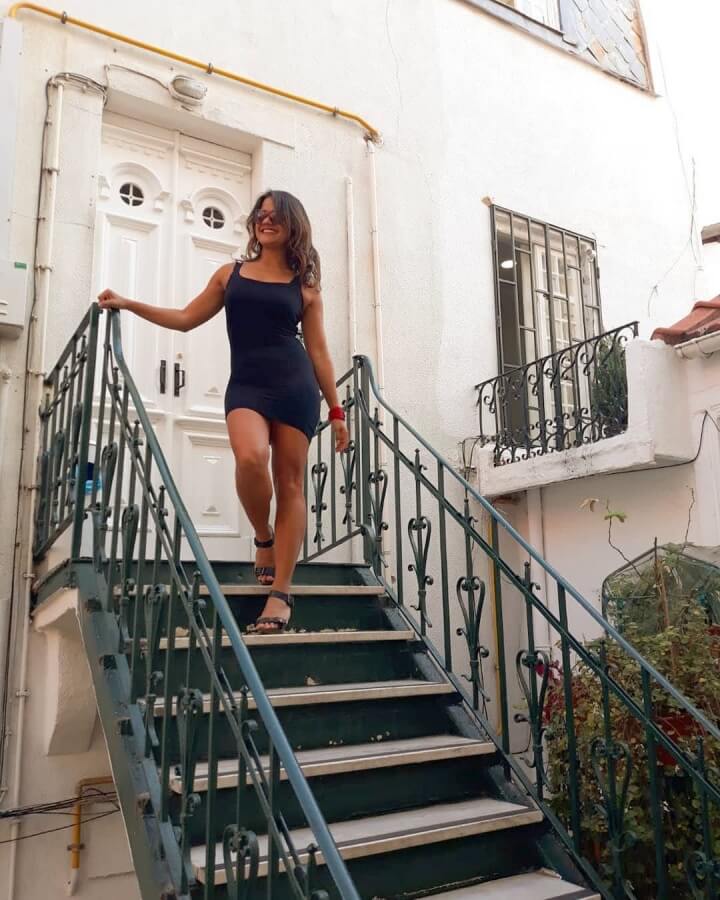
Where do you stay? Airbnb, hotels?
This depends on how long I spend in a place. When I first became location-independent back in 2016, I almost always stayed in hotels and charming bed & breakfasts. While I still love that, I’ve rented more apartments over the past years since it gives you more privacy and independence. It’s nice to be able to invite people over, fill up the fridge, work whenever, walk around naked, and make your own coffee in the morning sometimes. These simple things feel like a luxury when you’re always on the move.
I never stay in hostels anymore, but know that many nomads do since it can be a good way to meet people. I prefer to have my private room/apartment, interact more with the local community and also live more as they do. Since I always travel, I think it’s nice to not feel as much like a tourist and come back to “my place” after days filled with a little bit of everything! I’ve stayed in a few co-livings with other nomads over the years and those experiences were great. I can definitely imagine doing that again for shorter periods.
How do you find places to stay?
Via recommendations, local listings, the regular platforms like Booking.com, and Airbnb. Google Maps and local Facebook groups are also useful since not everyone lists their accommodation on the big platforms. If I’m going to spend a few weeks in a place I often find it easier to book a hotel for the first days and then find something more long-term once I’m there via local recommendations.
By now, I also have a big network of accommodation owners around the world and usually make the bookings directly with them when I go back to a place.
Packing for full-time travel
/ as a digital nomad
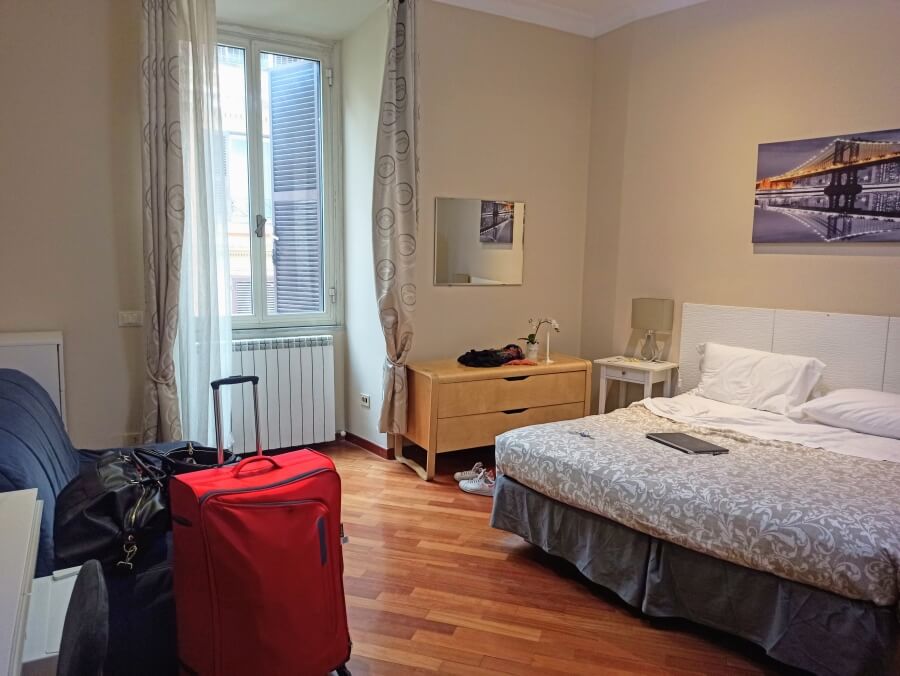
How much do you carry around?
A big suitcase, a big hand luggage and a normal-sized handbag with space for a laptop, etc. Every summer when I go back to Sweden I leave things and repack completely.
During my first years, I traveled with a big backpack because I figured it was easier to move around. Especially since I often visited small villages where there were no roads. Then one day I felt like my backpack days were over and have used a suitcase instead ever since ?. Unless I’m going for a long hike, which I love doing once in a while.
Where do you have your things?
In the basement of different family members (thanks for your patience ?). I sold most of my furniture back in 2016, so I’ve mostly got boxes with lots of clothes and some special things that I’m going to put in my future house(s).
Some nomads pay for storage, while others have an apartment they rent out when they are not there. In the future, I’d like to have a few different bases in my favorite places around the world. Dreamy homes that I’ll rent out when I’m not there.
How do you pack?
Since 2016, I’ve mostly had summer or at least spring weather all year round, which makes packing light easier. I still do a lot of different activities in all kinds of places, so I pack to be prepared for a bit of everything. From hiking and business events to exclusive nights out.
Some nomads travel around with several suitcases. I prefer not to since carrying around too much can be tiring when you move all the time. My bags already feel like a lot!
I usually kick off with light packing to be able to do some shopping and often return to Sweden with max weight. Some people are comfortable wearing the same things all the time. I prefer to mix it up, love dressing up at times, and you definitely can if you just plan well. I’ve standard packing lists for different types of trips so packing is a quick routine for me. By the end of each trip, I review the lists and update them if needed.
A few quick tips:
- Bring clothes you love wearing that can be combined in many different ways. Like long dresses, a nice cardigan/bolero, shorts, comfortable tops, and shoes. I prefer to kick off the year with things I like but haven’t used much/in a long time to not get tired of them.
- Don’t bring that outfit you spontaneously bought years ago because it “could be cool to wear one day” that you have tried so many times, but never actually end up wearing.
- Write a list. Think about where you’re going and what things are good to buy there. Brazil is for example known for swimwear and the shopping is in general great in many of the capitals. Leave some of your old stuff at home to leave space for shopping.
- Once you’ve packed, go through everything again and remove a few items. We usually always add a little bit too much the first time around ?.
What about shopping?

The nomad lifestyle teaches you to become very conscious about what you buy since you know that you’ll have to carry it with you. This is a good practice! I spend most of my money on investments, experiences, food, transport, and accommodations. Apart from that, I buy things I really like, such as decorations, clothes, and unique gifts. I limit my shopping a lot until I’m about to return to Europe. I’m also used to just saying no to things since I won’t have space for it.
It’s nice to have a memory from different places, so I’ve got a collection of cliché magnets since those don’t take up any space. I also take note of places with unique things I really could imagine buying in the future, like cool furniture stores. I’d love to decorate my future homes with unique details from my favorite places around the world.
Budget for digital nomads
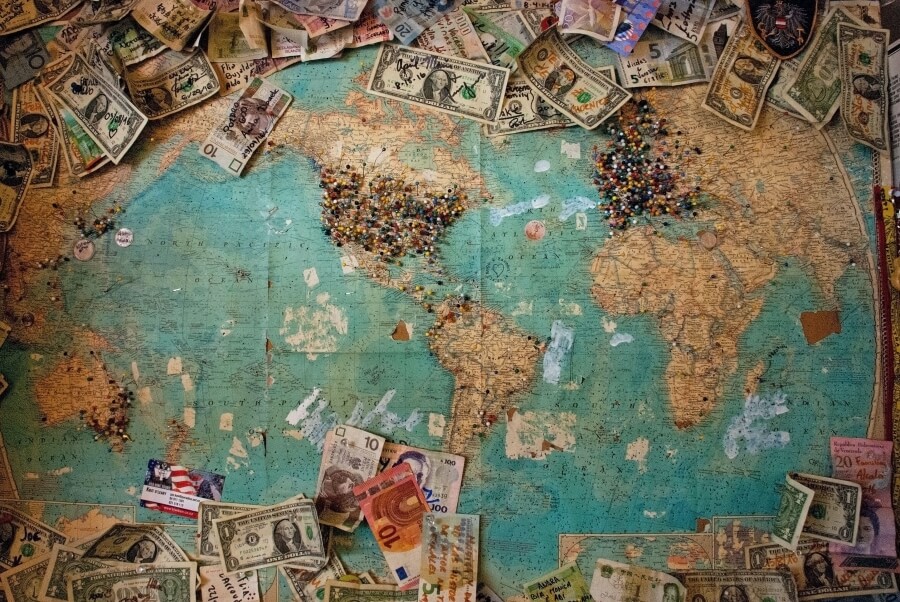
How do you afford to always travel? Isn’t it expensive?
How much you spend really depends on what kind of lifestyle you’d like to have. Make a budget based on that and make sure your income covers that and more.
Many people share tips on how to travel on a very tight budget. I’m not one of them.
I like to find deals but also prefer to change the perspective from ” I can’t afford it” to “how can I afford it”. While I don’t indulge in luxury all the time, I like to enjoy what the places have to offer.
With that said, when I stay longer than the average tourist I usually get better deals on accommodation. Since I don’t have a fixed base, that’s the only rent I pay. I love eating at simple local places, but also like to try exclusive ones. I don’t mind taking the local transport and in general, living like a person at the place I’m visiting. That’s a good way to understand the way of life and not just pass by as an outsider.
If you’re on a budget, prioritize the activities that you’re really keen on and accept that you might not be able to do everything at once. Quality before quantity.
Relations as a digital nomad
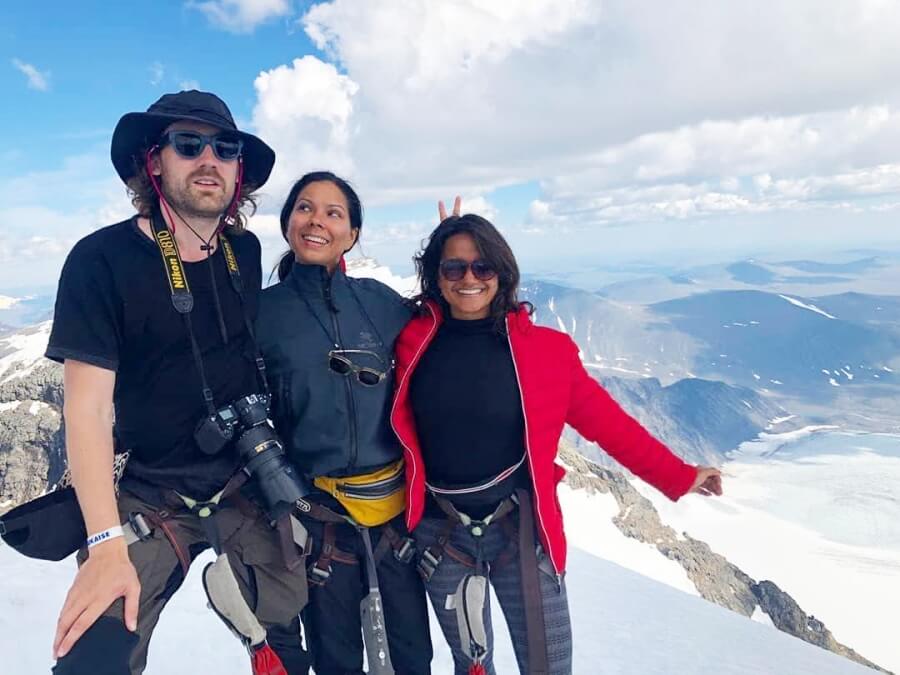
What about relations? How
do you keep in touch?
To maintain this lifestyle long-term, it’s important to find a balance between new and familiar places, to be able to reunite with friends and further develop relations. I think of my relations as independent of location. While I naturally miss the special ones, and often leave places with mixed feelings, the amazing people I’ve met thanks to this lifestyle more than makes up for it.
I set off time for catch-ups and plan reunions regularly at different places. A video call with a best friend far away can sometimes be more important than heading to a local event. I’m well aware of who is in my closest circle and don’t take any relationship for granted. Simple tools like group chats/calls are also great ways to catch up with several people at once.
It’s also a lot about perspectives. Instead of being sad for leaving a place/someone, be grateful that it happened. And if your connection is that special it’s not bye anyway, it’s see you soon. 😉
Do you always travel alone?
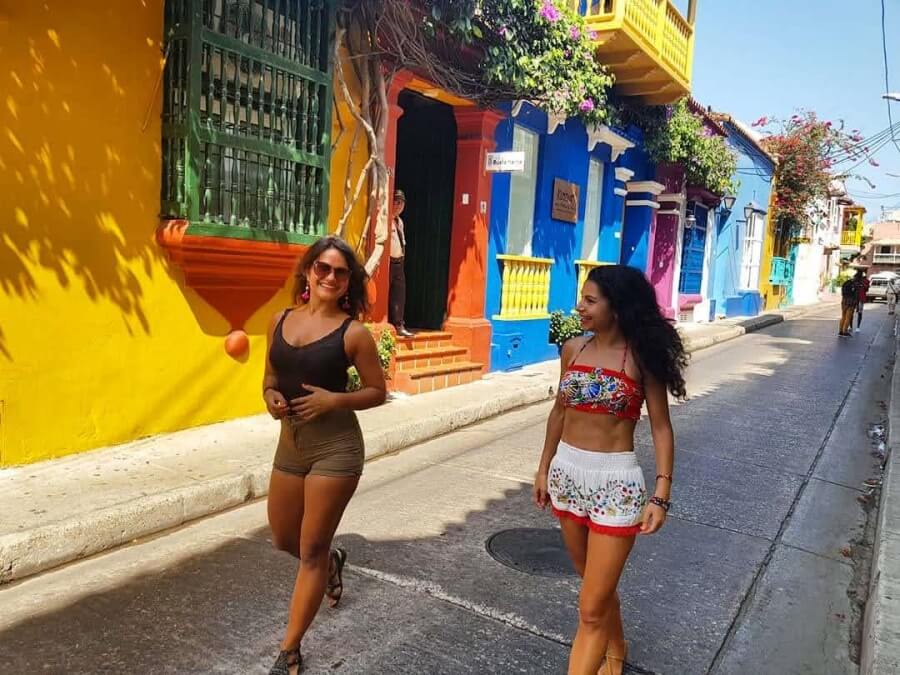
This is definitely one of the most common questions I get. Truth is, I love traveling alone! I also like traveling with others, it’s just different.
Since this is my lifestyle, not just a trip, you can compare it to a more “traditional life”. Sometimes you’re by yourself, sometimes you’ve got friends over, sometimes you meet new people, and some of them end up becoming friends or even something more. You probably don’t have the same friend with you wherever you go. In the same way, I “travel alone”, but sometimes friends and family come over and we travel together.
It’s also a misconception that you’re alone just because you’re traveling alone. I often meet more people when I’m by myself than if I’m accompanied by someone. Fact is, I’ve had some of my best adventures when I’ve been out by myself. I like the freedom of being able to plan your days as you wish and the excitement of not knowing exactly what the day will present.
… isn’t it lonely?
I rarely feel lonely but know that many nomads do, which is ok. If that’s you, it’s important to understand where the feeling comes from. Sit with it and keep in mind that it’s natural to feel lonely sometimes when you’re always “new in town”.
Sometimes it can be as easy as embracing that feeling, not getting too stuck in your head, and getting into the moment. Doing something you enjoy, or catching up with one of your best friends or family can also help.
It also matters whether you feel like this once in a while, or most of the time. If you don’t feel good about the way you’re living, it could be a sign that something needs to change. Remember that you always have the freedom to design your lifestyle.
When I’ve been based in touristy places for some time, I can feel the need for going somewhere where people actually live and aren’t just passing through. Staying longer somewhere will also give you more time to develop genuine connections. Reflect on what you need to make sure you feel good long-term.
I’ve also learned to love spending time by myself. Learning how to truly enjoy your own company is such an essential skill! When you do, you get more selective of who you spend time with. You also go for things no matter if you’re by yourself or with someone, like eating at that restaurant, heading to that concert, and so on. Sometimes you’ll even prefer to do it by yourself!
How do you meet people?
By taking initiative, via activities, co-working, events, workouts, dancing, social media, apps, and you name it. In Latin culture, it is usually very easy to get to know people, even when you’re just walking down the street. This might be trickier on a cold winter day in Sweden, though.
Don’t be afraid to start a conversation. Often you’re more than welcome to join! I’m outgoing which has made meeting people easy and I also feel that I’ve been lucky with those I’ve met.
These days there are also many nomad groups and forums on Facebook and independent platforms, which makes it easier to meet like-minded people. The challenge can be to meet people you click with when you spend a short amount of time in a place. If you’re like me and picky with your time, you don’t want to just “pass time” with anyone. Basing yourself somewhere for longer allows more time to develop genuine connections. I love the mix of longer stops and short adventures. It’s all about balance and what feels right for you.
How often do you see your family?

I go back to Sweden once a year and spend about 1,5-2 months there. While I see my family less often than before, I get more quality time with them. I’ve more days in a year with them now, just that it’s more concentrated.
When I was living in Sweden we didn’t live in the same city, so I usually visited them a few weekends a year. Those were often packed, trying to do catch up with everyone. Now, I can base myself in my hometown for a few weeks every summer and just work from there. Last summer my mum and I went to visit my grandma in Finland and I was the only one from the family who could join since most of the others “had to work”.
Lately, more friends and family have also started to visit me in different locations, which is amazing! If you are thinking about the nomadic lifestyle but are worried about not getting enough time with your family, remember that you can go back as often and for as long as you like. You can even move back to your hometown and work from there.
What about dating, isn’t it hard to have a relationship?
It can be challenging to develop lasting relationships when you’re always on the move. There are several nomad couples and people having distance relationships, so it’s definitely possible.
Some couples travel together, while others make sure to reunite in different places. It makes things easier if your partner(s) also have some flexibility, but what’s most important is that you find a model that works for you. Everyone has different preferences, and sometimes we get too caught up in how “it should work” instead of thinking about what works for us.
There are also many upsides when it comes to dating with this lifestyle. You have the chance to meet amazing people and go on dreamy dates. Knowing that you won’t stay for long can also make it easier to be direct, speak up, tell people how you feel, and open up to the special ones you meet. Instead of holding back when you know that something might not last forever (nothing does, anyway), challenge yourself to let it have the opposite effect.
Communication and setting of time for each other are important for making relations last. Especially if the other person is living a more traditional life. If you really want each other, are willing to accept the lifestyle differences, and put in the effort, I think anything is possible.
Work-Life Balance As A Digital Nomad
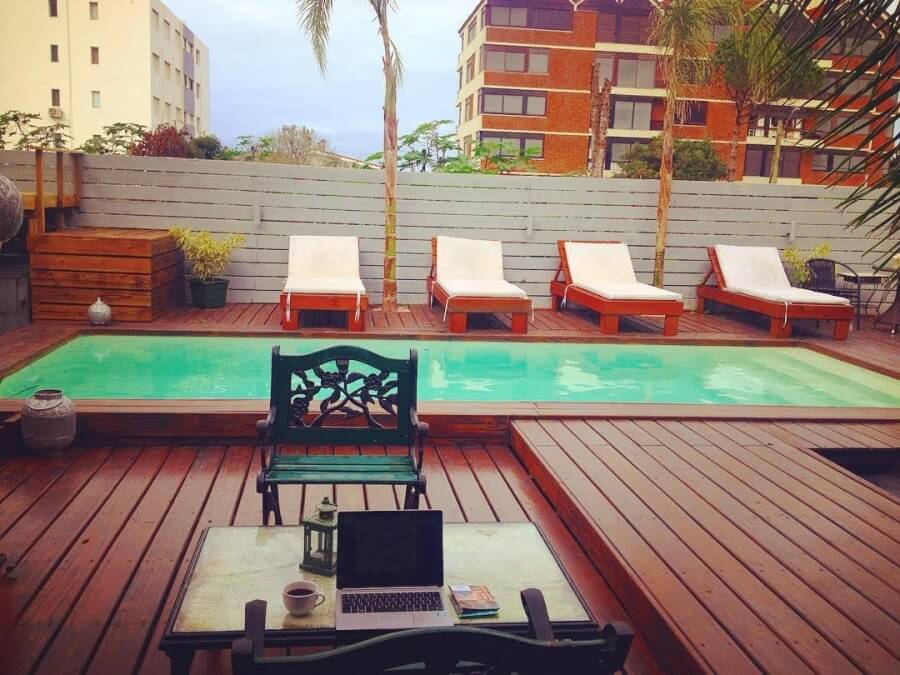
How much do you work?
It depends. I make my own schedule and don’t work the same amount of hours every day. Sometimes it might be all day long, while it can be a few hours other days. I adjust my schedule based on where I’m at the moment, workload, productivity, and goals.
When you’re an entrepreneur, you usually have your own projects to think about once you’re finished with your clients. Work will never end naturally, so it’s up to you to set the limits. It’s so easy to get trapped in some kind of in-between-work-and-vacation mode when you’re traveling full-time. While it’s incredible to always be based in different, gorgeous places, it’s as important to take proper breaks from work to stay productive. Experiment to find a good balance.
I’ve become better at this. In addition to taking full days and “time blocks” off, where I’m trying to avoid everything work-related, I go for at least one trip where I disconnect completely every year. It helps me to reflect, and the feeling afterward is amazing!
How do you find your clients?
When I started out, I used mostly freelance sites like Upwork and also worked a lot with local businesses at the places I visited. Before COVID, I went to a lot of networking events every time I was based in a big city. These days it’s a mix of referrals, business networking platforms, social media, my website, and clients who reach out after they’ve seen my work featured somewhere. I’m also building out the content on my website and will invest more into email marketing.
Having A Home and Tips
On How to Get Started
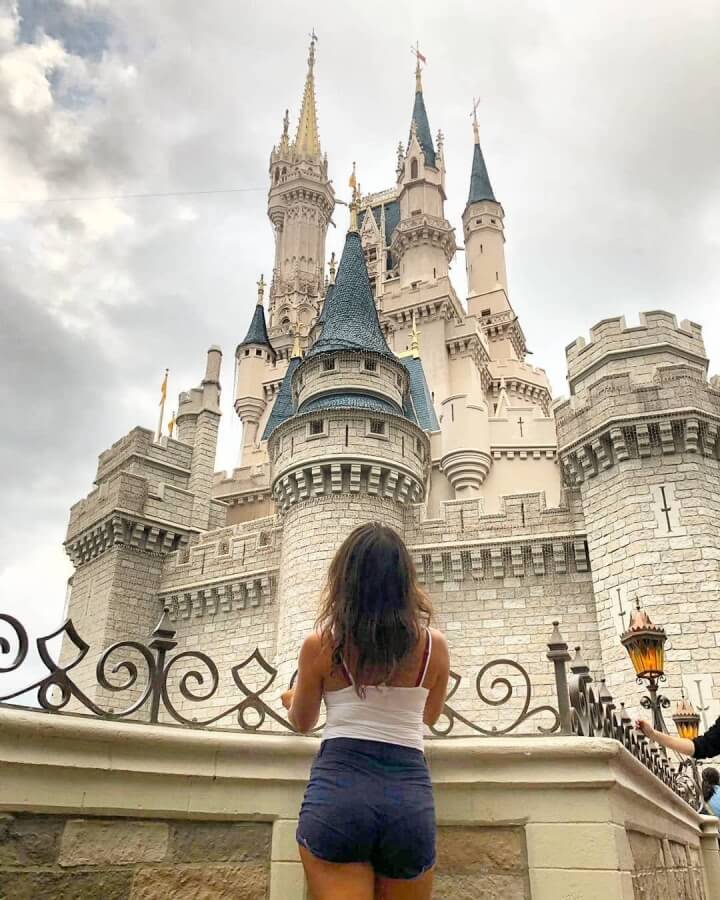
Don’t you miss having a home? For how long are you going to do this?
Not yet! Even if I also think it’s crazy when I let the fact that I haven’t had a fixed base in over 5 years sink in. Right now I can’t imagine settling down as I love the freedom of this lifestyle too much.
When I started out my plan was to travel for 6 months and then find a base somewhere. Those months flew by and I just didn’t feel like it. It felt too good to be true to suddenly be able to go anywhere while working with my passion. And to be honest, it often still does.
So now I don’t have a date in mind anymore. Instead, I regularly re-evaluate my lifestyle to make sure that I’m happy and see if any changes are needed. It’s comforting to know that if I would like to, I could choose to just base myself somewhere at any time. My lifestyle is constantly changing, so time will tell!
If you had to choose a place to live where would it be?
In the future, I would like to have at least two bases, one in Southern Europe and one in Latin America. Exactly where to be determined, I’ve got a few alternatives on my list. Even then, I still see myself traveling a lot, just with lovely homes to come back to. I love inviting people over and I’m also a fan of interior design, so once it’s time, I look forward to making my homes very special.
For now, choosing just one place to live feels too restrictive. As with everything else in life, I’m open for that my view on this might change. For now, I’m happy!
I would love to become a digital nomad too!
How can I start?
Becoming a digital nomad is all about finding a lifestyle that works for you, long-term. All of us are different, so start by defining your why and your ideal lifestyle. Set your tempo based on that, make a plan, and make sure to include enough time for both work and other things that make you happy.
Ready to design the life you want to live? If you don’t know where to start, below are two resources to kick off. Live is too short to not live in a way that makes you feel fulfilled.


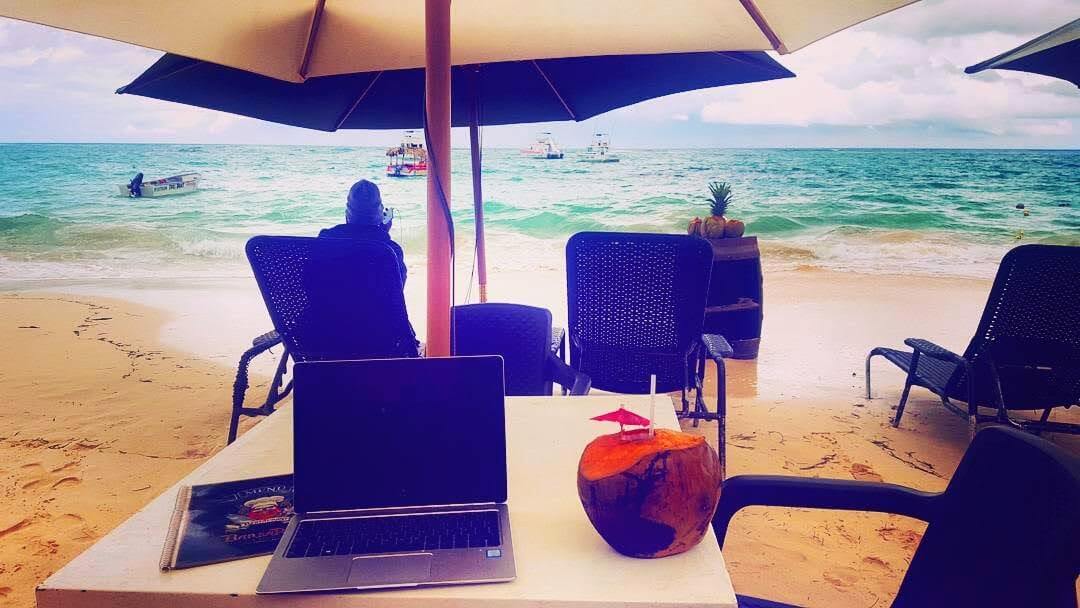
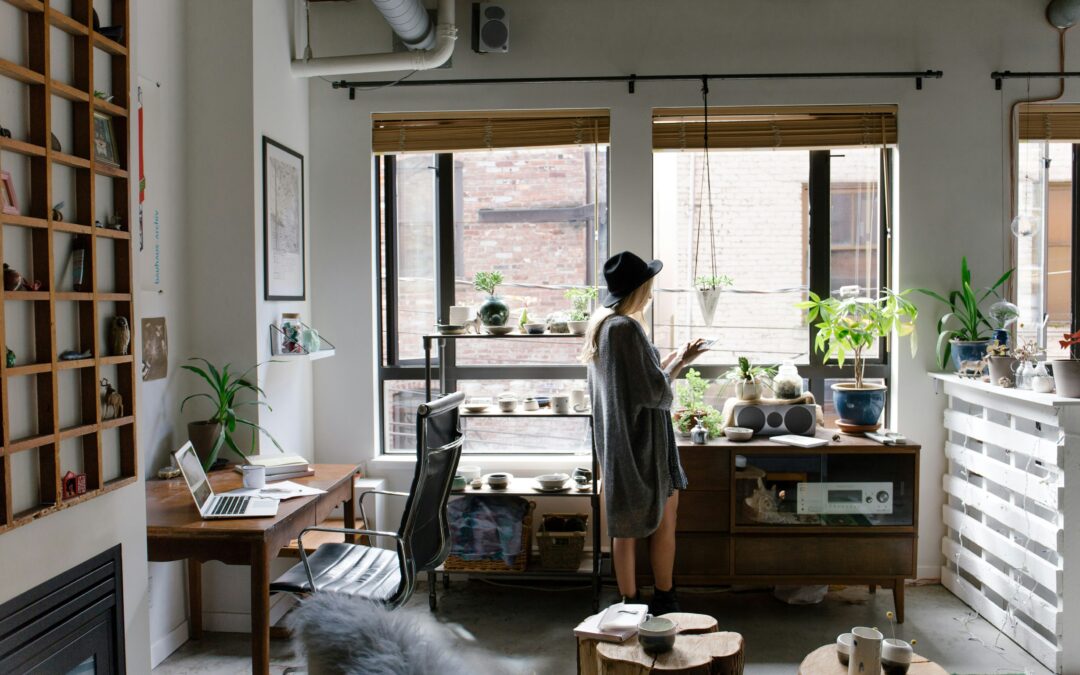



0 Comments